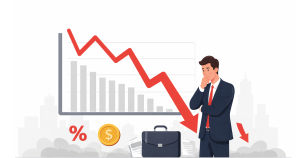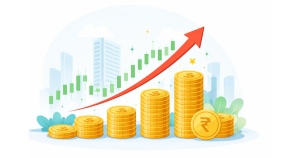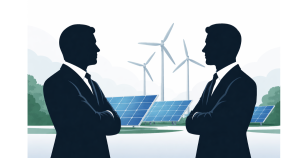Summary: A new wave of sweeping tariffs imposed by major economies like the U.S., EU, and China is set to disrupt global trade. These tariffs aim to protect domestic industries but risk triggering retaliatory measures, escalating trade tensions. Experts predict rising prices, inflation, and supply chain disruptions, impacting industries such as technology, automotive, and agriculture. Countries are exploring new trade alliances, with Southeast Asia and Latin America poised to benefit. While protectionist policies may offer short-term domestic gains, prolonged trade conflicts could fragment global trade and hinder economic growth. Businesses and consumers must brace for an evolving trade landscape.
A new wave of sweeping tariffs is set to disrupt global trade, as major economies impose fresh import duties in response to geopolitical tensions and economic pressures. The move is expected to reshape supply chains, impact consumer prices, and shift trade alliances in the coming months.
Background on the Tariffs
Governments worldwide have turned to tariffs as a tool for economic protectionism, targeting industries such as technology, automotive, and agriculture. The latest round of tariff hikes, announced by the United States, the European Union, and China, aims to counteract trade imbalances and strengthen domestic industries. However, these measures are likely to trigger retaliatory actions from affected nations, escalating trade disputes.
Impact on Global Markets
Experts predict that the tariffs will lead to significant price increases for raw materials and consumer goods, potentially fueling inflation. Companies reliant on global supply chains may need to adjust their strategies, shifting production to alternative markets or passing costs onto consumers.
Major industries, including electronics and manufacturing, are expected to experience disruptions as businesses navigate higher import costs and regulatory hurdles. Additionally, emerging economies heavily dependent on exports may face economic slowdowns as demand weakens in key markets.
Trade Alliances and Strategic Shifts
As tensions mount, countries are exploring new trade partnerships to mitigate the effects of tariffs. Regional trade agreements and supply chain diversification efforts are gaining momentum as businesses and governments seek alternatives to traditional trade routes.
For instance, Southeast Asian nations are positioning themselves as key players in the shifting global trade landscape, attracting investment and expanding manufacturing capabilities. Similarly, Latin American countries may see increased demand for their agricultural and industrial exports as trade realignments take shape.
Potential Long-Term Effects
The long-term impact of these sweeping tariffs remains uncertain. While protectionist policies may benefit domestic producers in the short term, prolonged trade conflicts could stifle global economic growth and hinder cross-border investments.
Economists warn that if tariffs continue to rise unchecked, global trade could become increasingly fragmented, leading to inefficiencies and reduced international cooperation. Companies and consumers alike will need to adapt to a rapidly evolving trade environment, where policy changes and economic strategies play a crucial role in shaping market outcomes.
As governments enforce sweeping tariffs, global trade faces a period of heightened uncertainty. Businesses must navigate shifting regulations, explore new trade opportunities, and prepare for potential economic turbulence. The coming months will reveal whether these measures will achieve their intended economic goals or exacerbate global trade tensions further.
Check out more on Startup Funding News. Stay connected with us across all our social media platforms: Facebook, Instagram, LinkedIn, X (formerly Twitter), Google news and Join Our Community.
Last Updated on: Thursday, February 20, 2025 10:53 am by Economic Edge Team | Published by: Economic Edge Team on Thursday, February 20, 2025 10:53 am | News Categories: Business






